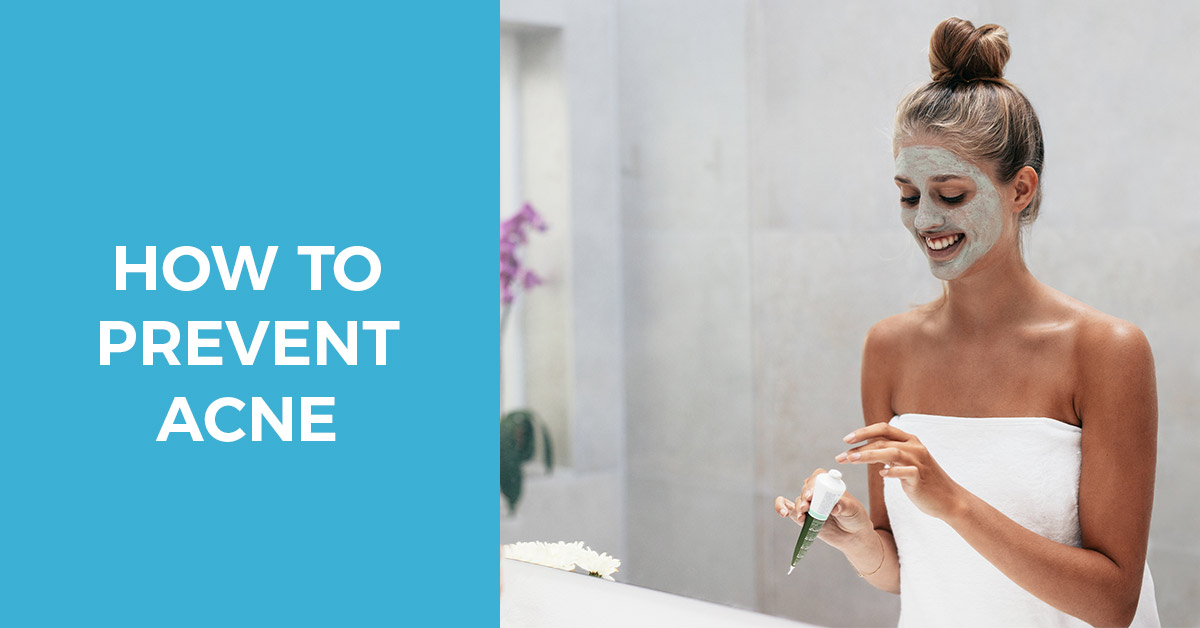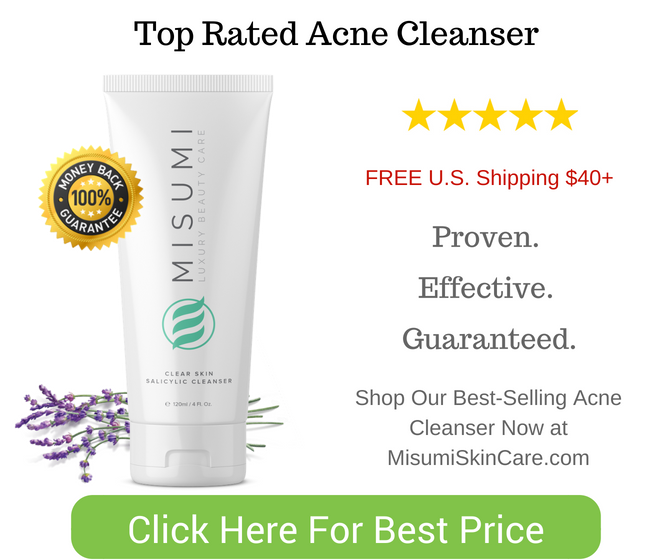Contents
The sad truth is that some people are simply more prone to breakouts than others.
The good news?
There are certain things you can do to prevent acne before it starts. By following these tips, you can help stop acne from forming.
Keep reading for seven easy ways you can prevent acne, naturally.
Pillowcases can house a plethora of bacteria or germs and if not changed often, can lead to skin irritation and acne. All the excess oil on your face, along with any product in your hair are left on the fabric and transferred back onto your skin.
Experts suggest laundering pillowcases after just three nights to keep acne at bay, especially if you are prone to breakouts. While the material of your pillowcase won’t necessarily cause irritation, it’s thought that natural fabrics may be best.
Make it a habit to not only launder your pillowcases often but to wash your face and hair before laying down for the night. An unwashed face and hair not only transfer oil and germs onto your bedding but also lead to more clogged pores.
BONUS TIP:
DO NOT touch your face!
While studies don’t directly link touching your face as the cause of acne, it certainly has been shown to exacerbate acne-prone skin.
It does make sense that excess oils and germs on your hands would further clog pores, leading to increased breakouts.
Stop Picking!
Keeping your hands off your face also means you need to avoid picking or squeezing at existing acne.
If you can’t stop acne before it starts, you certainly can prevent it from getting worse. When you squeeze acne, you are introducing more bacteria into already aggravated skin. Another side effect of picking at existing acne is scarring. Take it from me, you DON’T want to deal with acne scars on top of acne!
To keep healing time down for existing acne and further breakouts at bay, try some mindful thinking and tips to keep you from touching your face.
BONUS TIP:
Choose your makeup
Makeup and acne can become a vicious cycle. You get a pimple, use makeup to cover it up and end up with more acne than when you started.
Like anything you put on your skin, makeup can get into pores causing clogs. Additionally, some makeup products can contain chemicals that are irritating to the skin.
Acne can also be a result of an allergic reaction to products put on your skin. If you find yourself constantly breaking out, try taking a break from using any makeup for a day or two and see if there are any changes in your skin.
However, we understand that at times, going makeup-free isn’t an option. In that case be sure to look for a makeup that is fragrance-free or marked “non-comedogenic.” “Non-comedogenic” means that the product is manufactured to not to clog pores.
It may take some trial and error but finding the right product for you may be all it takes to stop the acne cycl
BONUS TIP:
It may come across as backward to add moisture and oil to skin when trying to prevent acne, but hear us out.
Acne occurs when bacteria and excess oil collects in your pores. If your skin is not properly moisturized (also known as dehydrated), it sends signals to cells to produce more oil. This increased oil production can lead to further bacterial growth and acne.
Much like it is with makeup, the trick is to find the moisturizer that works for you. Avoid oil-based formulas and try non-fragranced water-based products for maximum hydration with minimal irritation.
Acne prone skin needs a nourishing moisturizer both in the morning and at night after cleansing.
BONUS TIP:
You may be scratching your head wondering why we’d bring up hair products when talking about how to prevent acne. The reason may surprise you.
Hair products, including shampoos and conditioners, are often the culprit behind acne breakouts around your forehead, hairline, neck, and shoulders.
Not only are some chemicals used in hair products harsh and irritating but they can also clog up your pores, causing acne.
When picking out a new product avoid brands that contain Sodium Lauryl Sulfate, petroleum byproducts, and certain oils.
Sodium Lauryl Sulfates are foaming agents in many shampoos that give you that “rich lather” you see in commercials. According to the Cosmetic Ingredient Review, this chemical, when left on the skin, not only causes irritation but acne itself.
Petroleum byproducts come under many names but are all things you want to avoid if you’re trying to prevent acne. By nature, petroleum byproducts are not easily rinsed off the skin and often leave behind residue. This residue then clogs pores, leading to acne.
Some oils can cause acne, and some can worsen any existing acne. The chemical makeup of Jojoba oil is very similar to your body’s sebum, and can further exacerbate clogged pores.
Stay hydrate!
Drinking plenty of water seems to be a cure-all for a myriad of problems. This is especially true in the case of acne.
While alone drinking water won’t completely rid you of pimples, research suggests that staying hydrated will flush out toxins and help your skin function better. It’s for this reason; water should absolutely be in your arsenal against acne.
When you are properly hydrated, you should see redness decrease as well as more supple skin. Remember, hydrated skin not only glows but is actually better able to heal itself.
We’ve all heard the tried and true “drink eight glasses of water a day.” However, how much water your body needs is highly dependant on individualized factors.
For example, as a baseline, men should be drinking 104 ounces of water a day while women need 72 ounces. From there you need to take into account exercise, elevation, if you are pregnant or breastfeeding and more.
BONUS TIP:
Try to think of 9-13 cups a day as your minimum water intake and take note of changes in your skin.
Avoid stress to prevent acne!
Scientists can’t quite put their finger on why stress and acne seem to go hand in hand, but they’re definitely onto something.
In a study done at Stanford University, participants who were undergoing testing (AKA, stress), saw a higher rate of acne than students who were not currently testing. The thinking behind the study is that stress hormones cause an increase in sebum production, causing more breakouts.
While the exact correlation is unknown, the link is there. Stress hormones can increase blood flow and make your skin appear redder.
Additionally, when stress levels are high, your immune system is weakened, leaving your skin prone to infection and acne
BONUS TIP:
The Takeaway
Following just one of the tips alone may not entirely banish acne, but if used together, you give your skin the best shot at being acne free.
Some key points to remember,
- Look closely at the ingredients in the products you use daily, especially makeup and hair products.
- Keeping your hands off of your face can decrease the amount of oil and acne-causing bacteria on your skin.
- Change your pillowcases and sheets often.
- Drink at least 9-13 cups of water a day to keep your skin glowing and clear.
- Keep stress levels to a minimum whenever possible.
- Invest in a good moisturizer for your skin type, and use it twice daily.
Do you have any tried and true tips for stopping acne from rearing its ugly head? Let us know in the comment section below!
TIP: Check out our comprehensive guide – how to get rid of acne!



